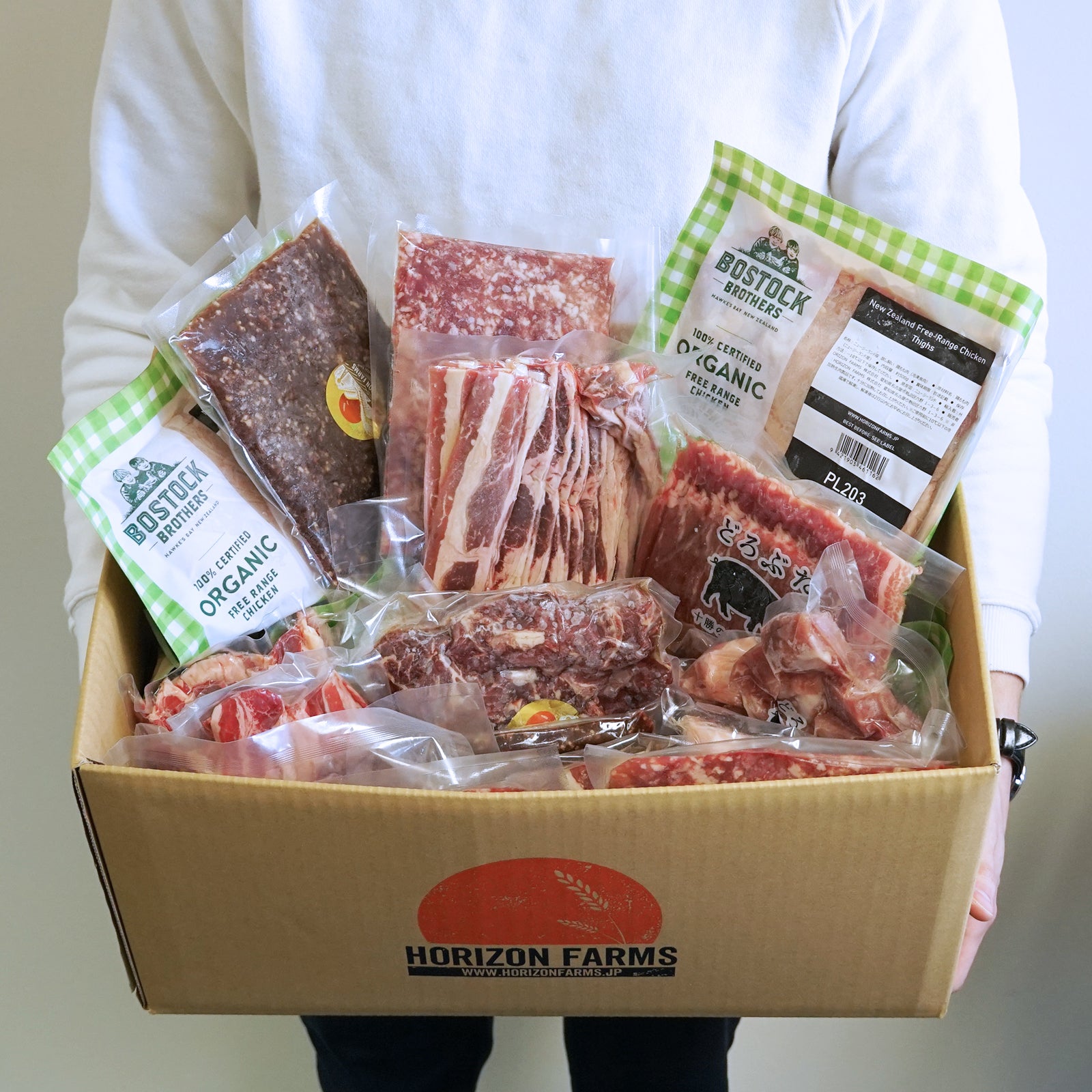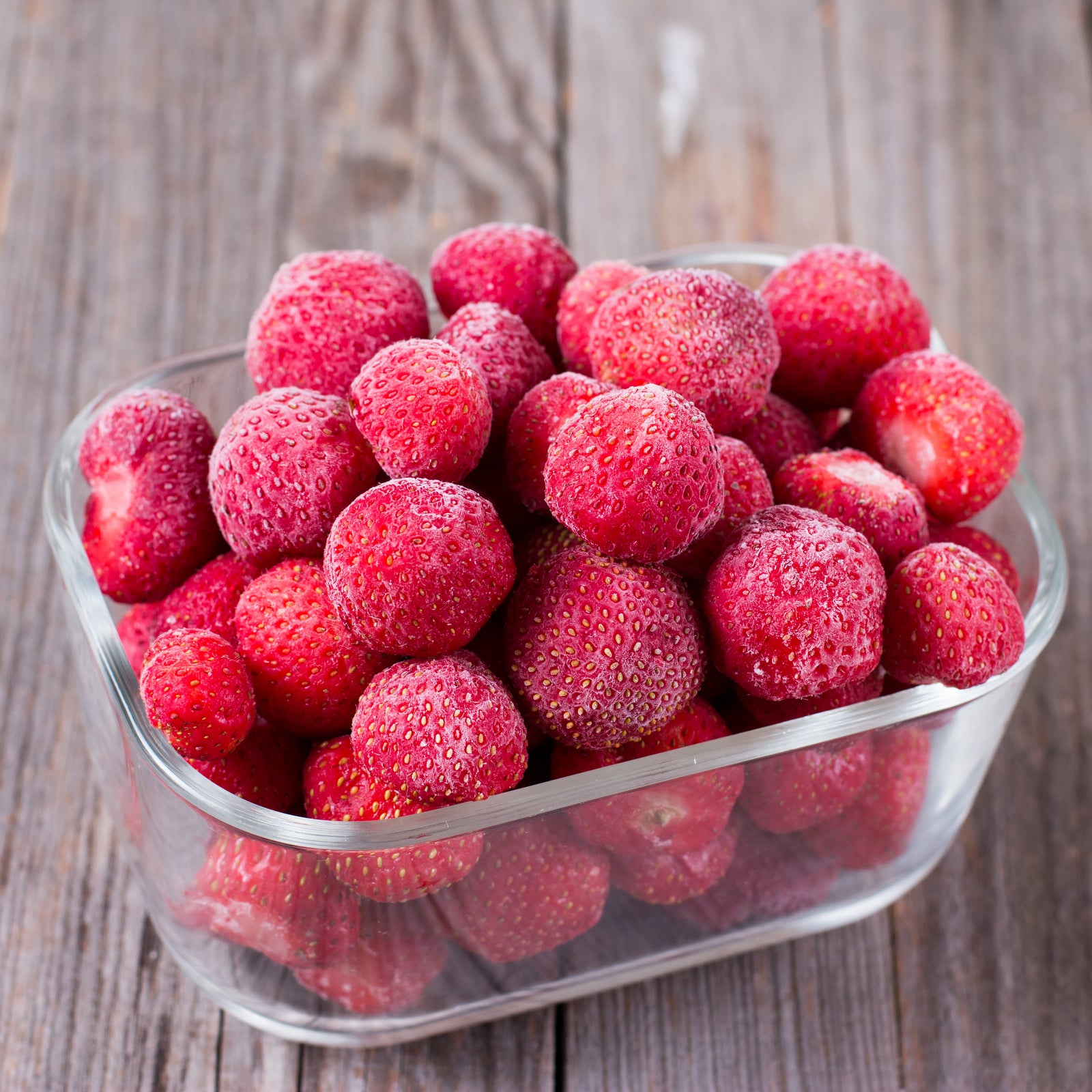

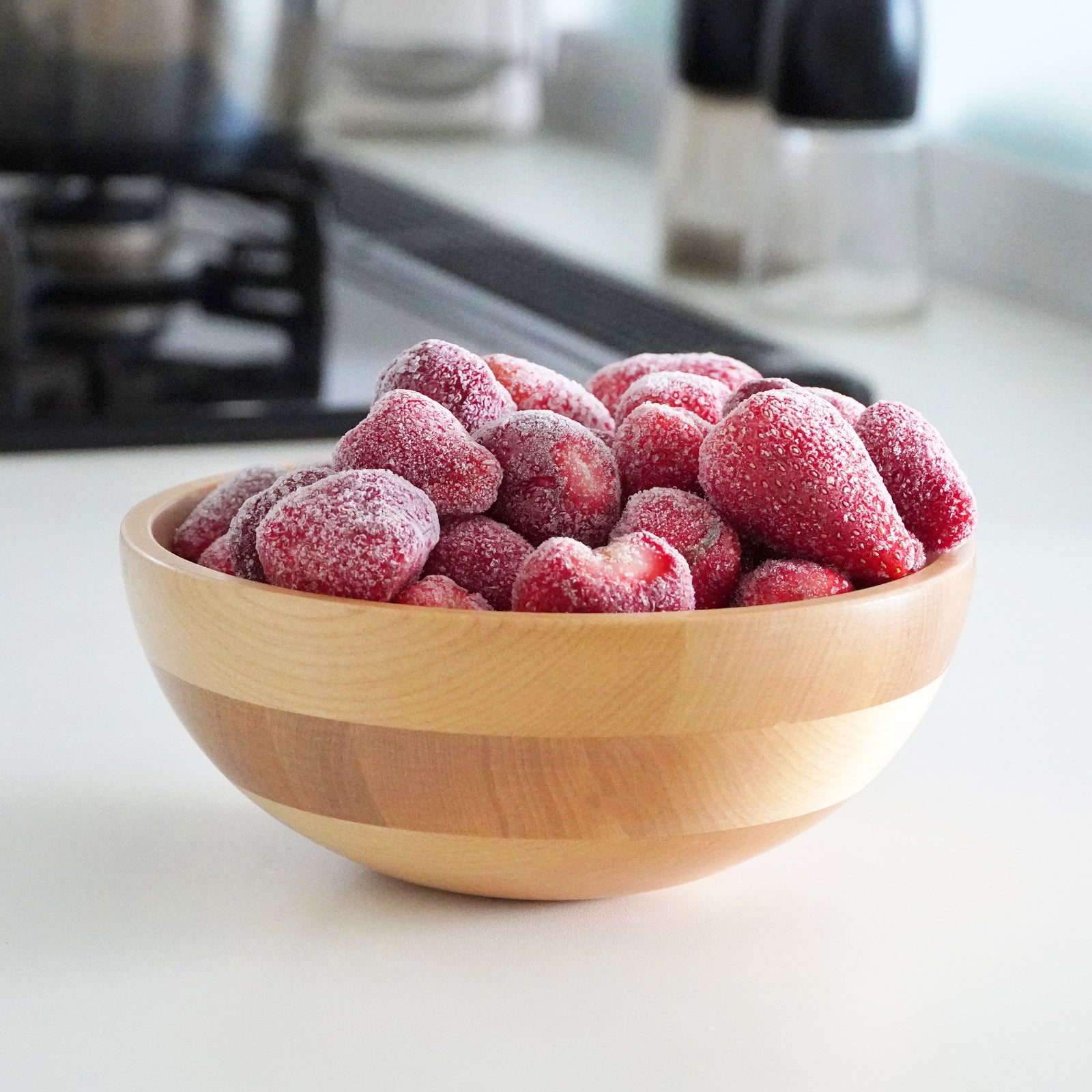
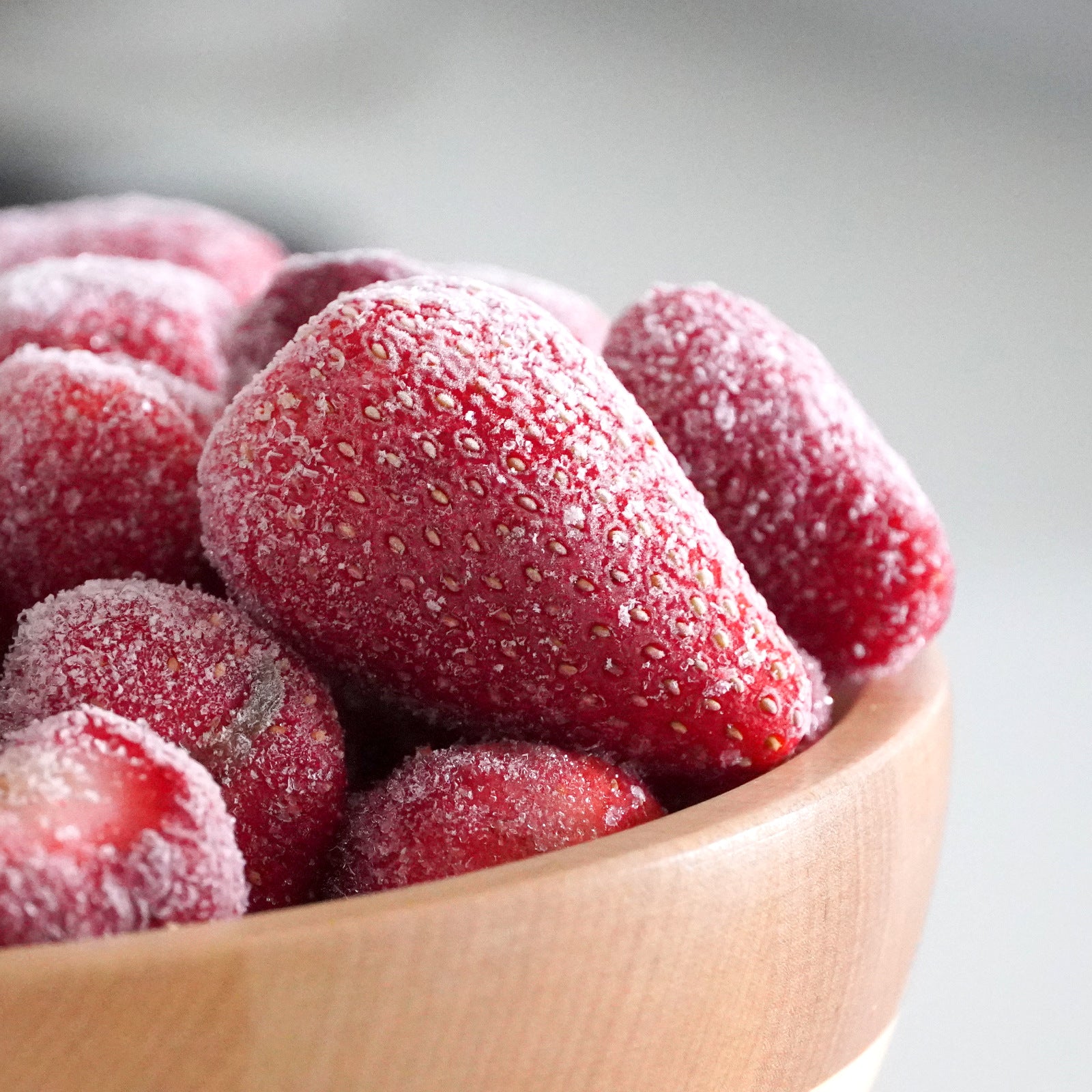
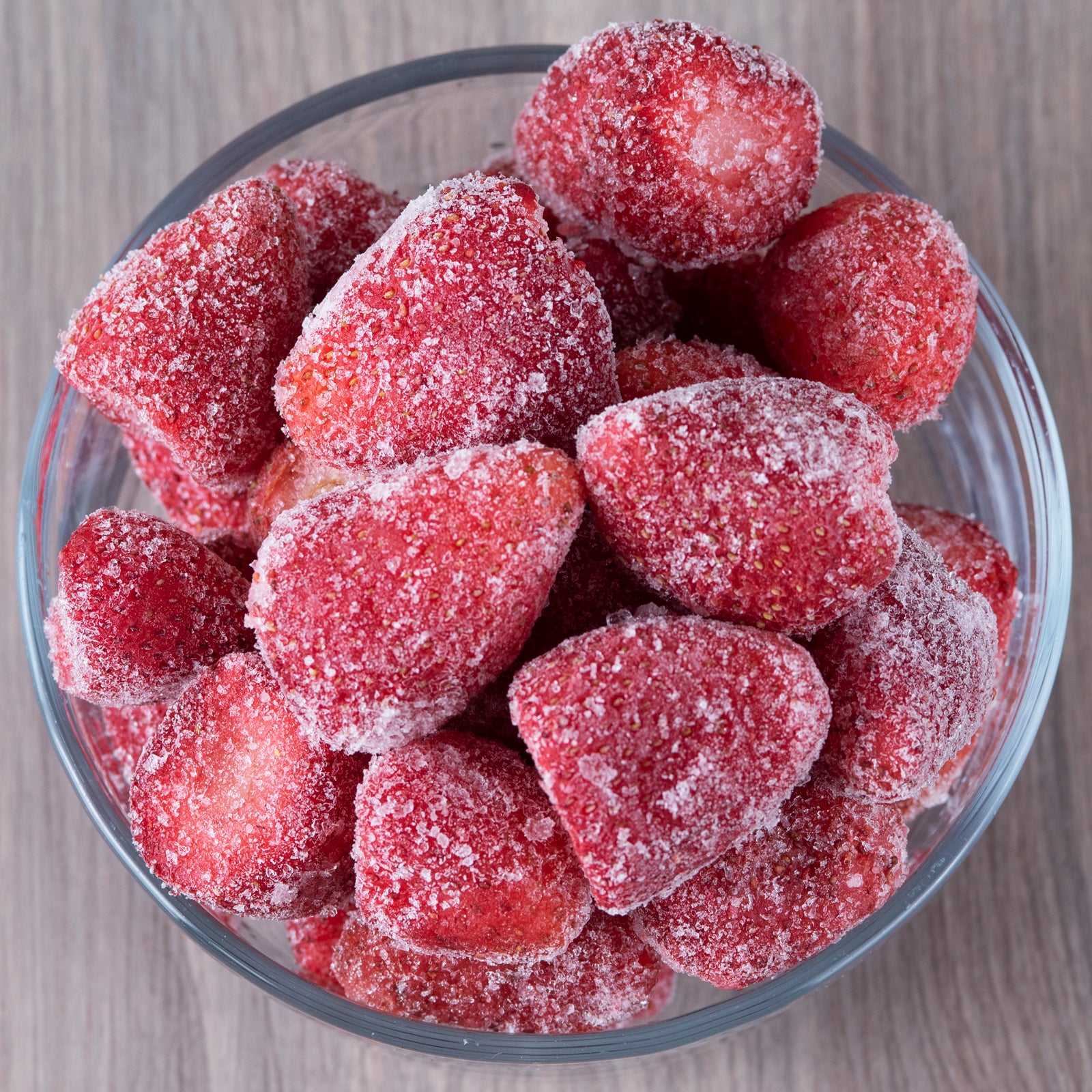
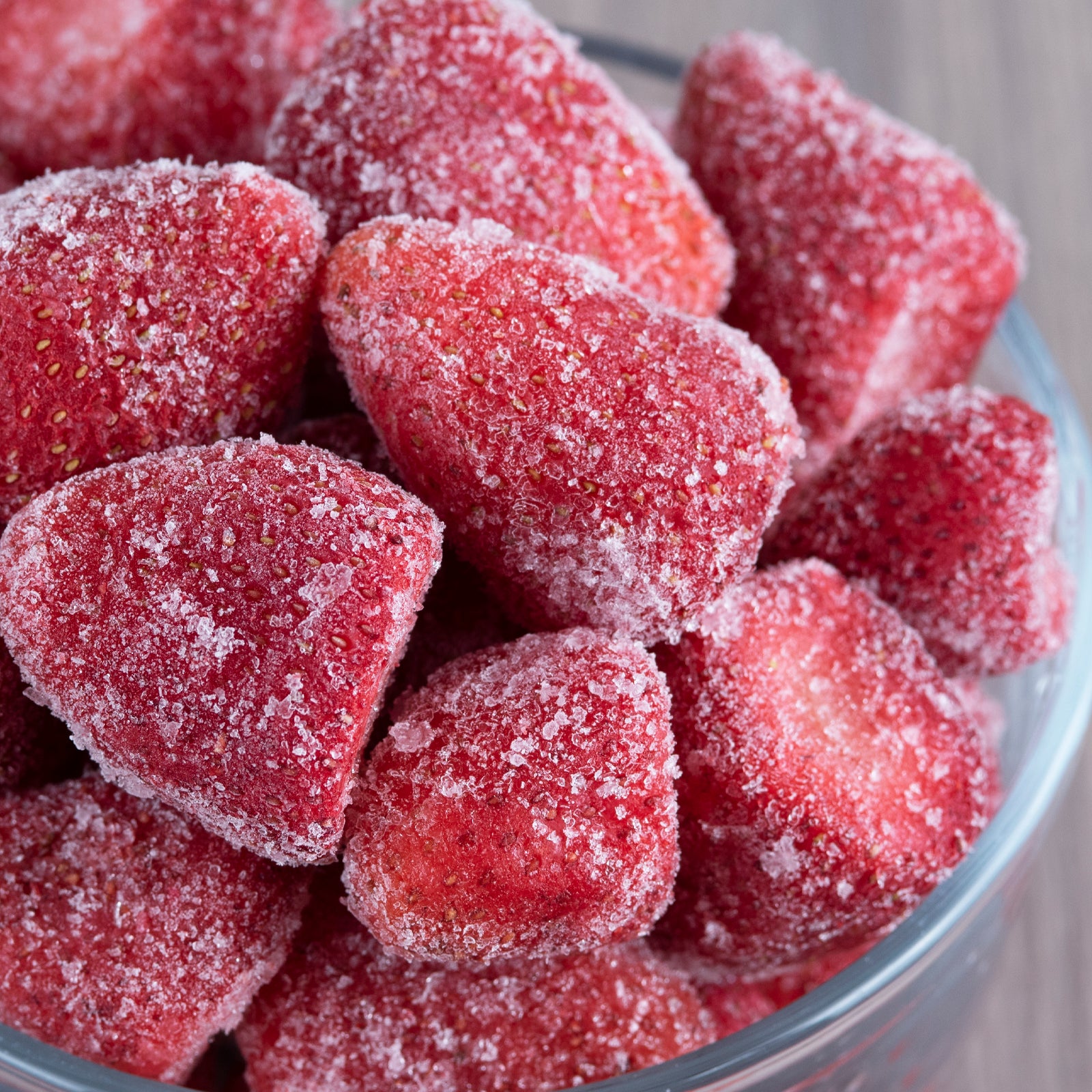
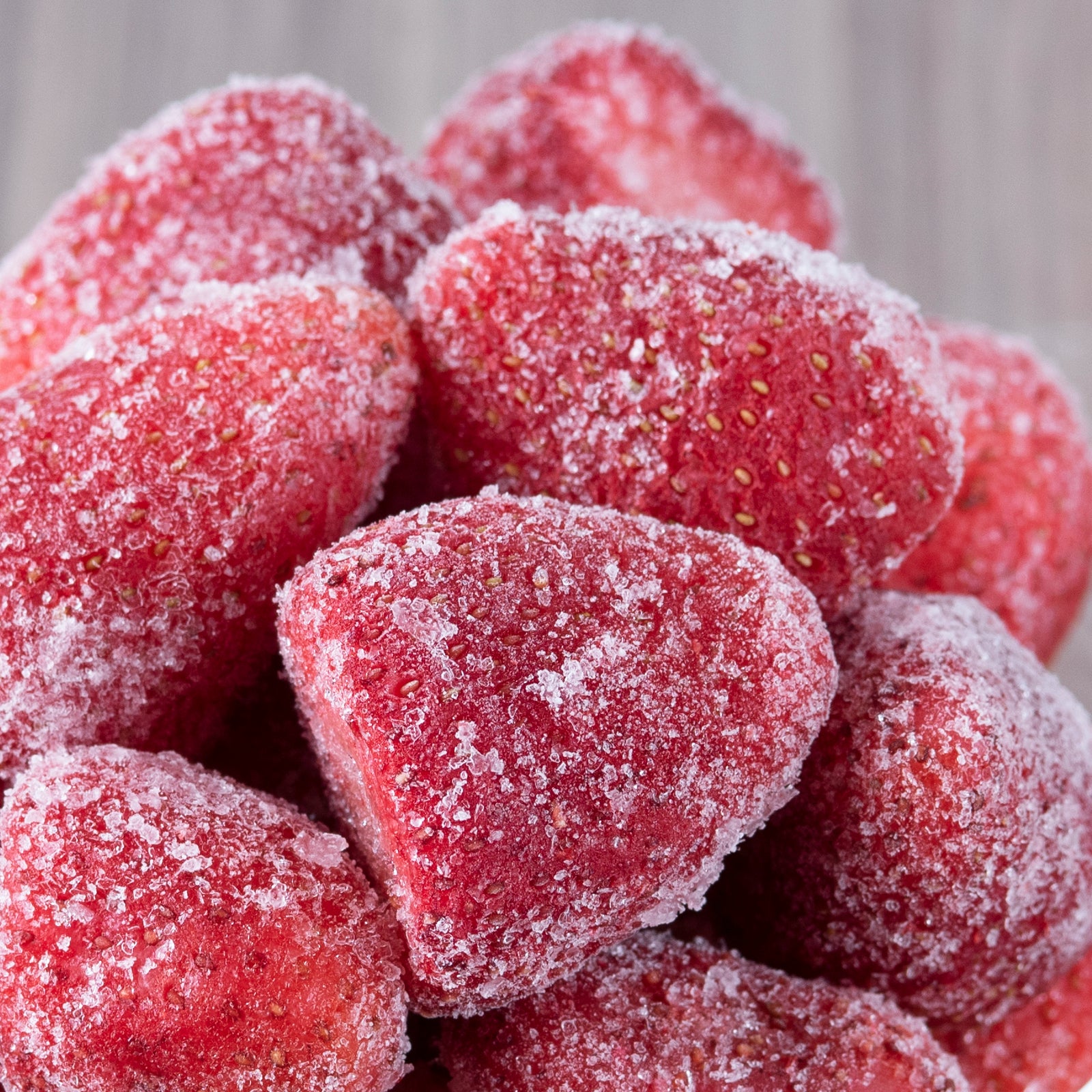
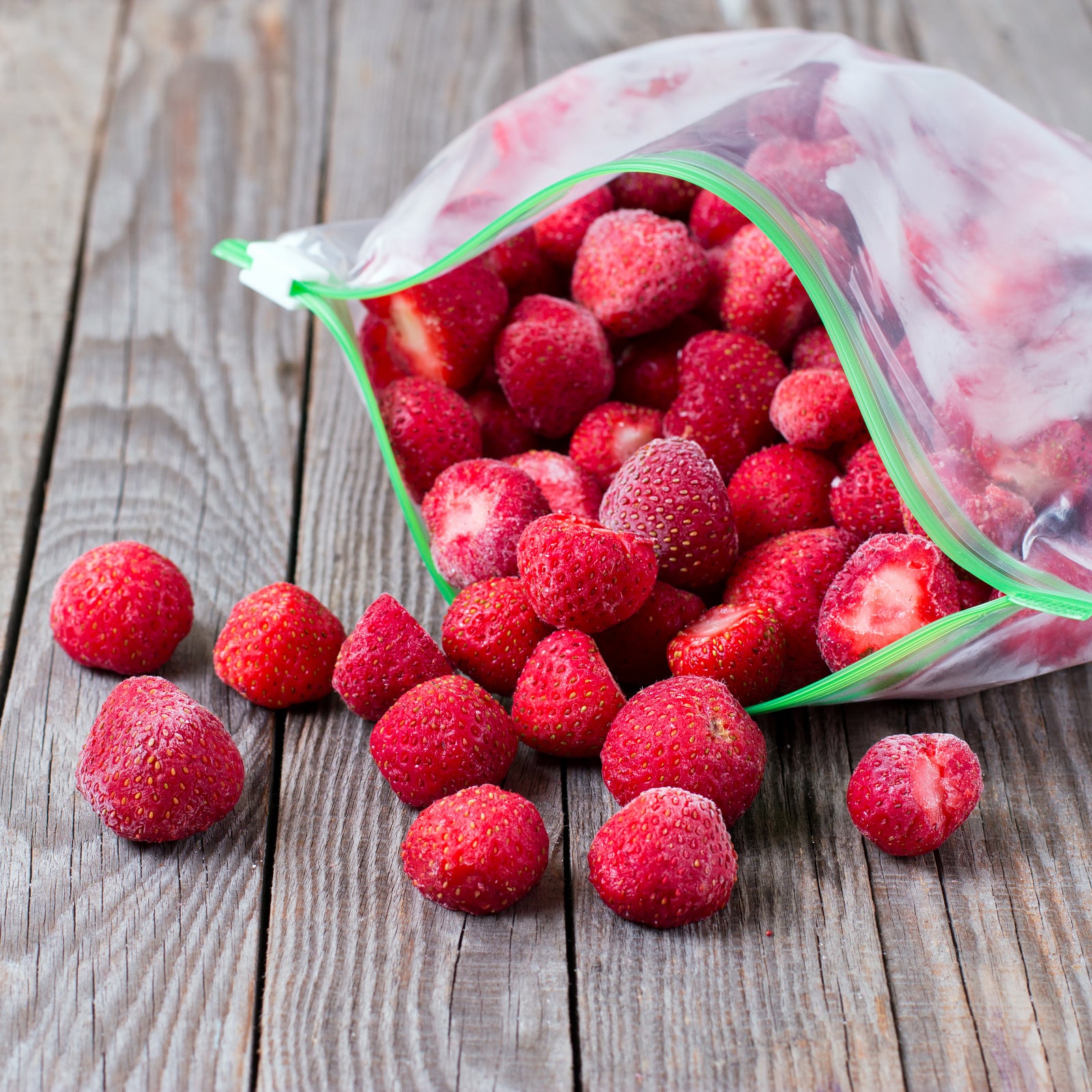
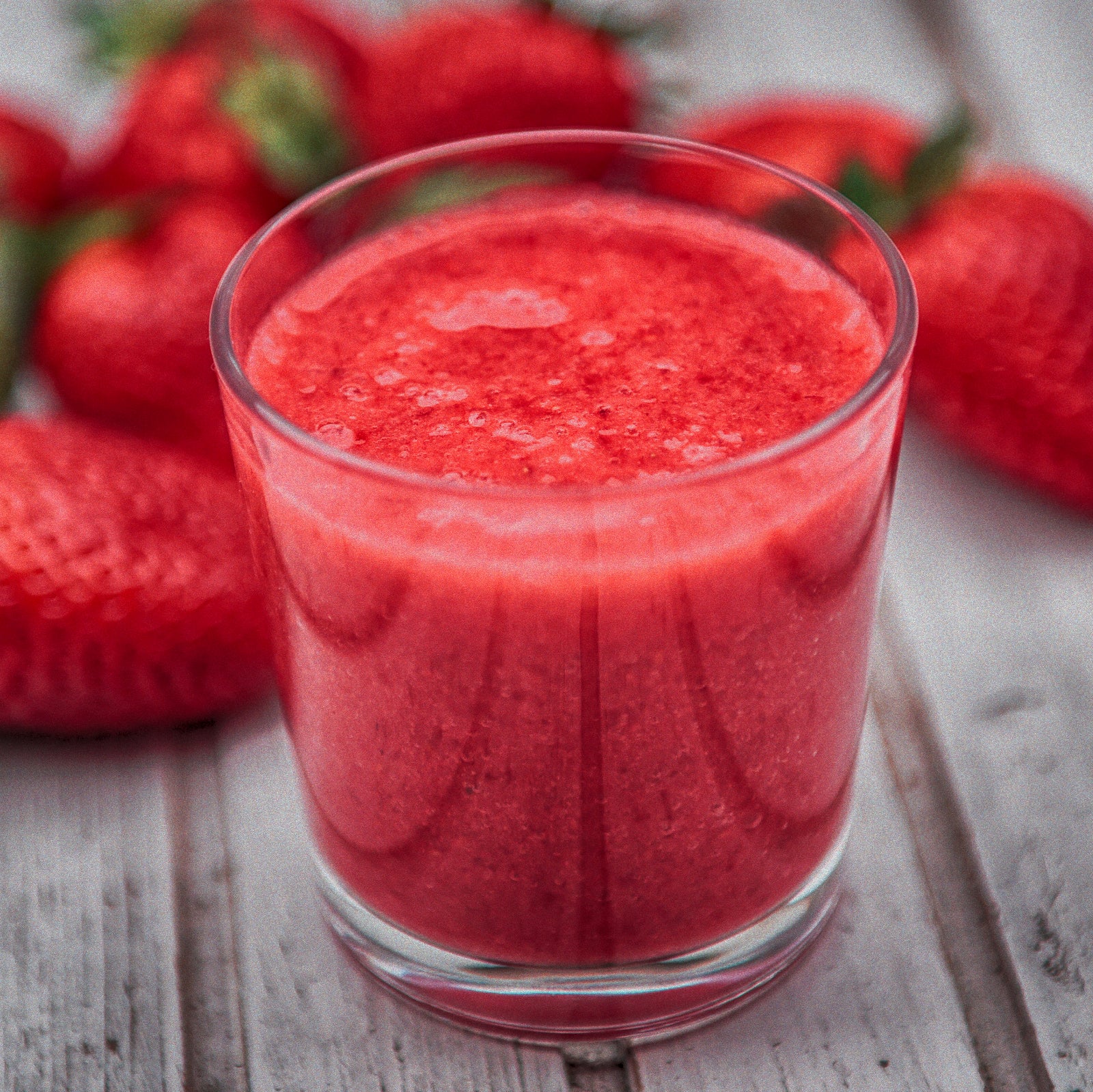
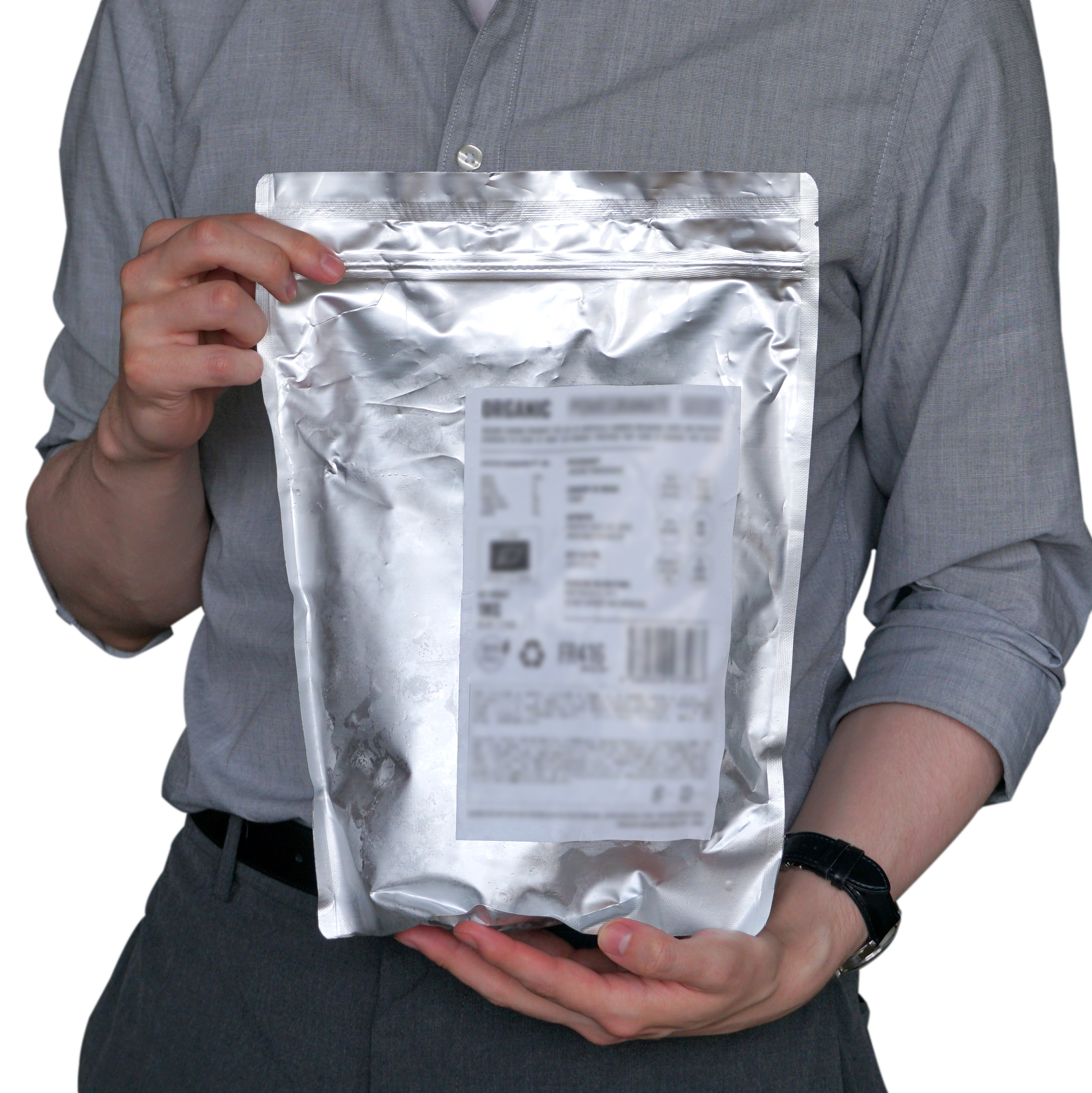
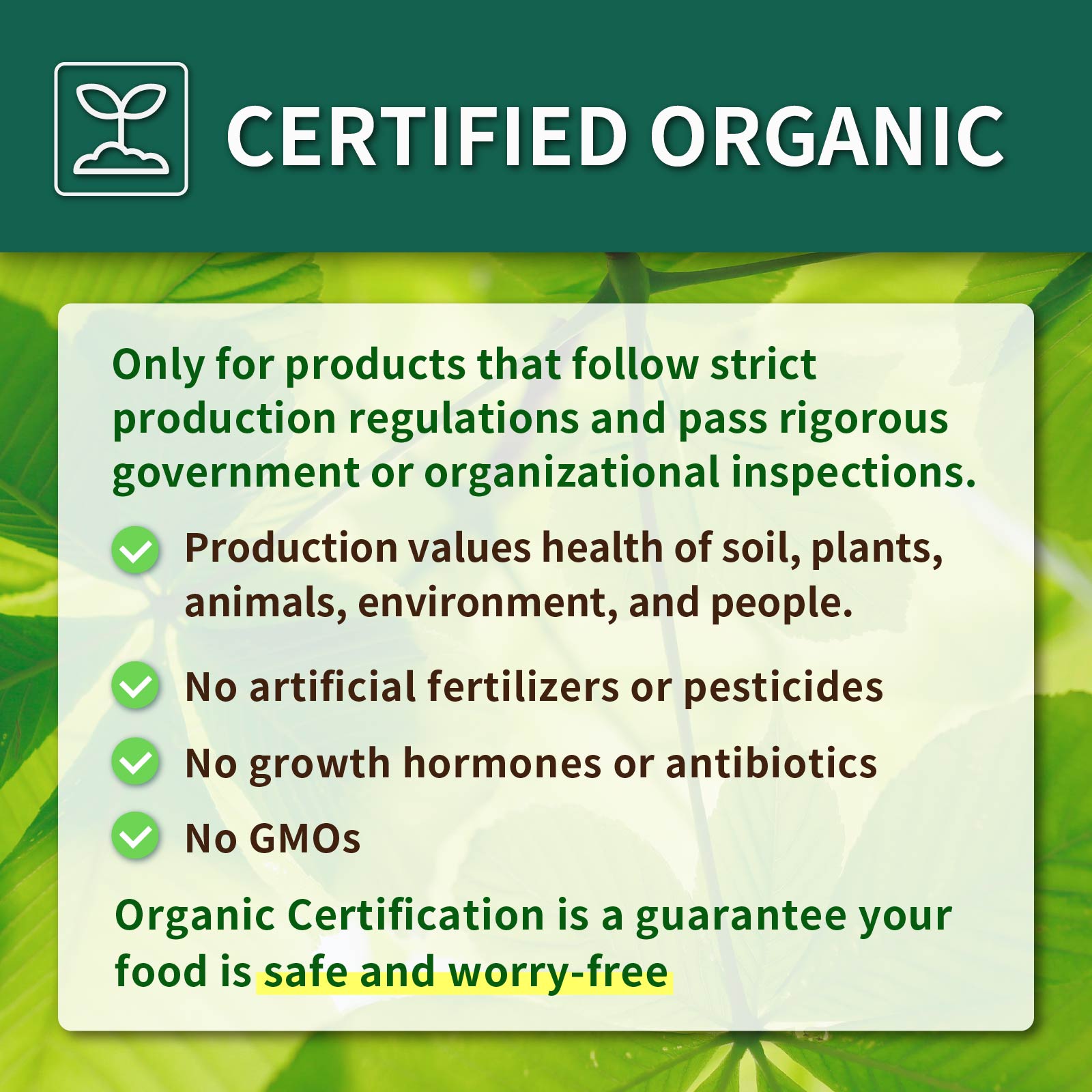
Horizon Farms
Certified Organic Frozen Strawberries from Turkey (1kg)
Choose options
One full bag 1kg (2.2lbs) of ACO certified organic, also Japan certified organic JAS, fresh frozen strawberries from Turkey. All hand-picked, washed and individually flash-frozen (IQF) right after harvest for freshness. These strawberries vary in size from 18mm - 26mm (3/4 inch to 1-1/32 inch). Absolutely no added sugars, sodium, or refined starches. No use of chemically synthesized fertilizers, pesticides, preservatives, sweeteners, colors and flavors. See more about certified organic below.
These strawberries are from a mountainous region of Turkey, about a 5-hour car drive from Istanbul. Due to the mountainous climate (extreme temperature differences between day and night) these strawberries are very rich in deep red color and sharp (slightly sour) taste.
We also sell organic mixed berries containing strawberries. Click here to view our organic mixed berries. For those who prefer a smaller option, we also offer organic strawberries in a 300g (10.5oz) pack from another producer.
About Certified Organic
This product is certified Japan Agricultural Standard Organic (JAS) - both in the country of origin and Japan. Japan has one of the world's strictest organic certification standards. But what does certified organic mean when it comes to fruits and vegetables?
✔ Strictly tested for E Coli, coliforms, molds, yeasts as well as listeria and salmonella and therefore meets very high microbiological safety standards.
✔ Free of harmful synthetic chemical inputs such as fertilizer, pesticides or any food additives.
✔ Free of genetically modified seeds (non-GMO)
✔ The farmland and soil in use are free of any chemical treatments.
✔ Organic produce is heavily regulated. Producers and importers are checked and inspected by governmental bodies or certified third parties. Organic certification requires detailed bookkeeping and documentation for 100% traceability. "Certified organic" is a protected phrase and the use is legally restricted.
✔ Organic farming is more sustainable when it comes to holistic food production. The lack of harmful pesticides is better for the environment.
✔ Organic produce comes mostly from family-owned farms that own smaller acres of organic land.
It is also important to mention that organic produce is more cost-intensive. Organic farming has lower yields compared to conventional farming and is oftentimes more labor-intensive as well. Additionally, organic certification and audits require annual fees for producers, exporters, and importers resulting in higher prices for the end consumers.
Please note that non-GMO and chemical-free produce will often have a minor degree of defects; these may include individual differences like slight deformities, discoloration, and under/over ripeness. In rare cases there may be insect damage, scratches, or mold which cannot be seen during inspections. However, these are not harmful and can simply be removed. Thank you for your understanding.
Contents
| Contents | 1 pack |
| Weight | 1kg (2.2lbs) |
| Package Dimensions | 16 x 9 x 30cm (6.2" x 3.5" x 11.8") |
Shipping & Handling
| Shipping | Shipping and delivery is frozen |
| Handling | Keep frozen below -18°C (0°F) |
| Expiration | Check product label, usually more than 3 months. |
Details
| Ingredients | Organic Strawberries |
| Packaging | Resealable food-grade aluminum pouch *The color of the pouch could be different depending on the time of arrival. |
| Country of Origin | Turkey |
| Organic Certificates | Organic Japan Agricultural Standard (JAS) - Certificate Number: Bureau Veritas HWJP1390 |
| Other | Please note that although we visually inspect the products after mechanically removing the calyx, very rarely (about 5%) part of the calyx or patterns may remain on the product. In addition, there may be some loss in shape, insect bites, scratches, or mold on the inside that cannot be seen during visual inspections, but they are not harmful and can be removed. Thank you for your understanding. |
| Nutritional Facts | 100g serving size Energy: 32kcal Total Fat: 1.0g Sodium: 1mg Total Carbohydrate: 7.6g - of which is sugar: 5.3g Protein: 1.0g |


